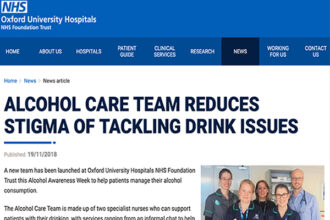Posted: 2/16/2016 11:39 AM by
Interim HealthCare
A stroke can be one of the most frightening experiences that you ever go through with your elderly mother. In just moments everything that you thought you knew about her health and had in mind for her care as she ages in place can change and suddenly you are having to reimagine her life and the care that you will give her as she moves through her stroke, goes through her recovery period, and then works on moving forward as she redefines life after stroke. If this type of medical event becomes part of your care journey with your mother, it is essential to take the time to reevaluate your plans and create a senior care plan designed to address her new needs as she moves beyond the stroke.
Use these tips to help you create a senior care plan after a stroke:
• Understand the event. Before you can create a care plan you must understand exactly what your mother went through. Make sure that you know when she suffered the stroke, the type of stroke that she suffered, the damage that it caused, the doctor’s prognosis for her future health. This will help you to form care efforts that are appropriate for her specific experience and needs. Do not be afraid to ask questions and to continue asking until you get the information that you need. Avoid doing your own research in place of asking the medical team as you may find inaccurate information.
• Seek out help. Seniors who suffer strokes often need 24-hour care for the first several weeks or even months after their stroke. As soon as possible after your mother experiences her stroke, seek out the assistance of a senior care services provider who can work with you to ensure that your mother gets all of the care, support, and assistance that she needs as she recovers. Seek out a care provider who has experience caring for seniors as they recover from a stroke.
• Create clear instructions. Care after a stroke can be extremely difficult. This is a time when your mother’s body is still acclimating to what happened and trying to recuperate. Create a clear set of instructions for all members of your care team, including care providers and therapists. These instructions should include your mother’s personal information such as her name and birthdate, any allergies that she has, her medical history, and her medical requirements including medications, dosages, treatments, and any guidelines.
• Keep records. As you are going through the recovery with your aging mother after her stroke, keep in mind that her needs can change rapidly. Keeping records of what you do with her on a daily basis, and what she achieves with her caregiver, will help you to keep her doctor fully informed so that you can work together to continue adjusting your care efforts to ensure that your care plan is as effective and efficient as possible.
If you have an aging loved one in need of senior care contact Interim HealthCare today.








